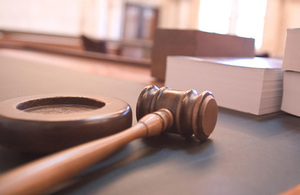Tax avoiders to be told ‘pay now’ as government demands tax owed upfront
Users of tax avoidance schemes to pay tax upfront whilst HMRC investigates and challenges in the courts.

The government is changing the economic incentives to avoid tax and promote tax avoidance.
A consultation has been launched on proposals to add to the circumstances when HMRC will seek upfront payments from users of tax avoidance schemes.
This follows the Autumn Statement 2013 announcement that HMRC will ask for upfront payment from taxpayers using avoidance schemes the same as or similar to one that has been defeated in the courts.
The consultation will look at proposals to include any disputed tax associated with schemes that are subject to the Disclosure of Tax Avoidance Schemes (DOTAS) regime and taxpayers engaging in the most abusive tax avoidance and therefore being investigated under the government’s tough new anti-avoidance legislation – the General Anti-Abuse Rule (GAAR).
This will remove the tactic that some taxpayers currently use of holding onto the disputed tax – sometimes for years – while their case is being investigated and litigated. In most cases, the tax being avoided through these schemes will ultimately be due as HMRC wins over 80 per cent of avoidance cases that it litigates.
Although not changing the underlying tax rules, these changes will significantly shift the economic balance and will also help HMRC in resolving around 65,000 cases it is currently investigating.
It will also act as a deterrent to those tempted to exploit the cashflow advantage allowed by the current rules.
David Gauke, Exchequer Secretary to the Treasury said:
The government has been absolutely clear that we will not tolerate aggressive tax avoidance and will take action to make sure people pay the taxes that are due. While the vast majority of taxpayers play by the rules, there is still a minority who will engage in artificial schemes as a way to avoid their responsibilities.
The consultation we are publishing today will not only seek to remove the advantage that tax avoidance schemes users have; it will send a clear message to anyone thinking of using these schemes to avoid paying the tax that is due – tax avoidance doesn’t pay.
While the vast majority of people pay the taxes that they owe on time, there is a minority who enter into contrived schemes that have little or no chance of working.
Currently, taxpayers must disclose that they are using an avoidance scheme. In doing so they accept that HMRC may challenge the scheme. These proposals to seek upfront payment will only apply where the scheme hits avoidance hallmarks. It is effectively an extension of the terms and conditions taxpayers may have to accept when deciding to use an avoidance scheme.
Taxpayers will be free to continue to make their case to the tribunal or court and, if successful, their money will be returned with interest.
The government has taken significant steps to clamp down on tax avoidance, investing nearly £1 billion in HMRC to tackle the issues of tax avoidance, evasion and fraud. As a result, marketed tax avoidance has seen a reduction in the number of new schemes being developed.
Photo courtesy of Joe Gratz on Flickr, used under Creative Commons.